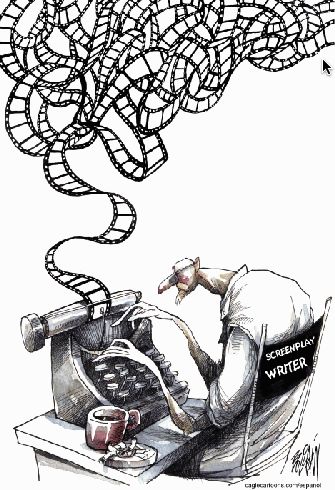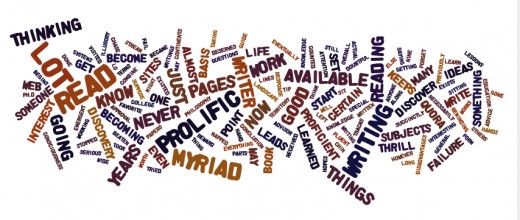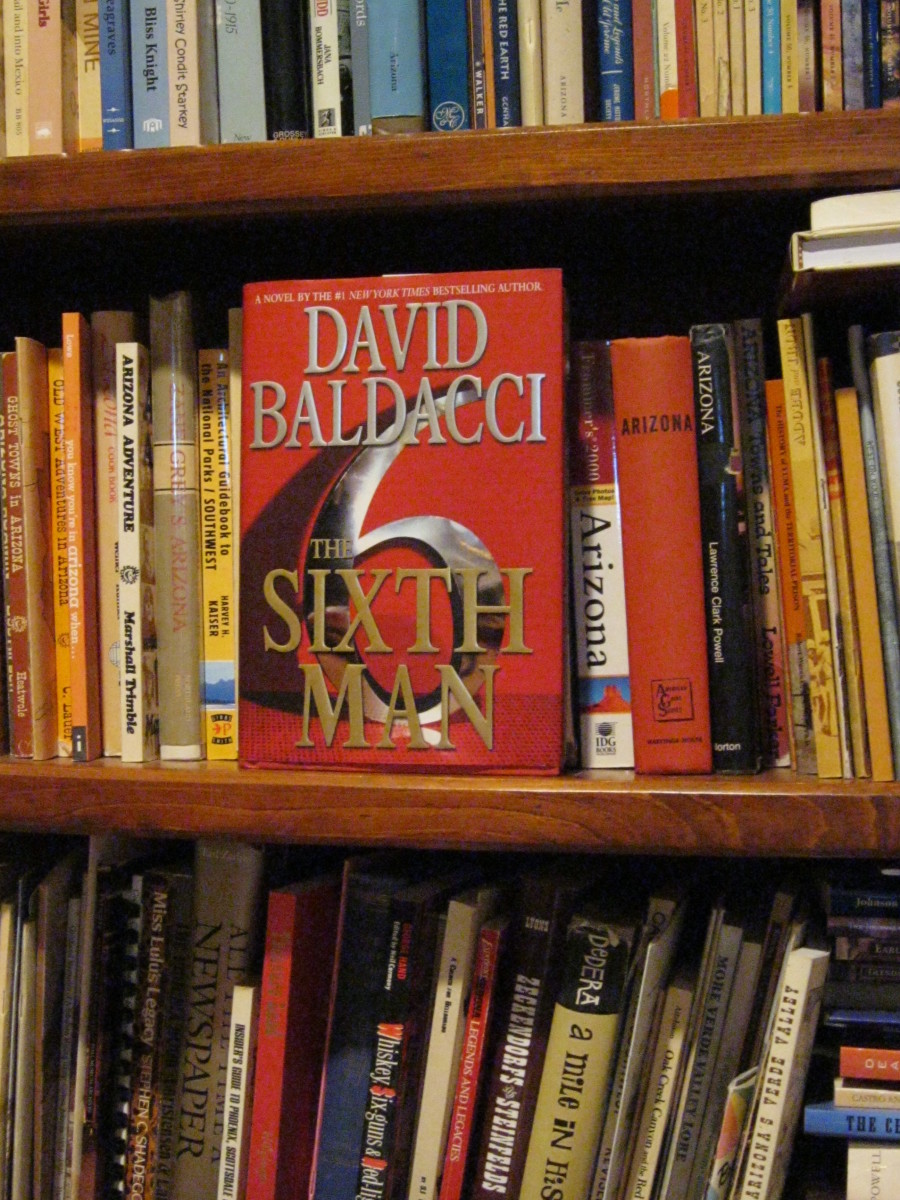Writing Tips: How to Be Prolific

Introduction
As a full time college student, full time house husband, father to two dogs and and now managing editor for efiction magazine's soon to be launched horror imprint, I am often asked how I have time to write so often and on such a variety of different topics and in so many different styles. While I firmly believe a lot of it is genetics and my "affliction" of Attention Deficit Disorder, there are also things I've learned to help me become a better and a more productive writer. There are numerous ways to improve the craft, to develop ideas and to publish quality and interesting content. I would like to share some of these ideas with you now.

Read
You cannot be a good writer without being an avid and voracious reader. Reading can help with the formulation of ideas, with grammar, with spelling, with vocabulary, and, most importantly, with the broadening of horizons. Stephen King, the world's best selling novelist and one of the finest commercial writers of modern times in his book On Writing says that you need to read as part of your daily writing routine. Schedule it. Treat it as part of your job as a writer. I tend to read 3-4 books at once. I'm usually reading one novel or poetry book, one book on the craft and/or business of writing, a biographical or historical book and something lighthearted and fun (As of this writing, I'm reading The Van by Roddy Doyle, Two Copper Coins by Dale Price, The Productive Writer by Sage Cohen and The Band Name Book by Noel Hudson). Reading such a variety exposes me to numerous styles and ideas. You can also translate what you're reading into easy money by reviewing the books or taking some of ideas, situations, and characters and running with them and creating a short story, poem, commentary, expose or essay of your own.
Books I'm Reading As of This Writing in January 2012

Write
I don't care if you're writing for pleasure, for money, as part of a non writing career or for school, you need to write everyday if you want to get better. A musician doesn't improve as a musician if he doesn't practice, the same goes for writers. I don't care if you write for an hour and it's not publishable, you're still a better writer for having written. Furthermore, if you're able to recognize that it's not any good, you're also growing as a writer. Most writers will tell you that when you write, you should go into it expecting no one seeing the first four or five pages you write. This takes the pressure off of you. Just write and let the creative juices flow.
Are you lacking inspiration? Don't worry, I'll get to that.
The act of writing is simple. It's not about being inspired, it's about filling a blank piece of paper with words. Whatever your allotted writing time (we'll get to that too) is for the day, sit down and write. Do not edit or critique. Just keep your pen on the paper or fingers on the keyboard and write whatever comes to mind. Not only is it fun to see where the mind takes you, you also don't want to interupt your flow by stopping to read or edit what you're written. Odds are, you're bound to find something useable for a poem, story or essay from just free writing. The critical element, of course, is not stopping until the time is up and not editing yourself or reading what you've written until your time is up. I recommend an hour, but no less then 30 minutes.

Look for Inspiration
Even the most creative amongst us need to often LOOK for inspiration. You don't always wake up with an idea but, if you're a serious writer, you still need to sit down and write.
So where can you find inspiration?
Well, in addition to reading a lot, here's some other ideas I've found helpful for coming up with ideas.
* carry a notebook. You never know when inspiration might strike. Always have a notebook and writing implement with you so if a phrase, memory or image crosses your path you can write it down and refer to it later. I try to keep a notebook in my messenger bag, my car and two or three rooms throughout the house, including the bathroom. Many writer's keep a notebook by their bed as well for those late night moments of inspiration.
* television/films. Watch Television, films and documentaries with a notebook in your hand. If a scene, show, character or theme catches your attention, write down your thoughts right away. You don't need to formulate anything, but it's important to capture your immediate thoughts and emotions.
* people watching. Go to a park, a mall, a train station, a school, a church; anywhere where there are people and just watch and listen. If no one catches your interest, describe the setting you're in. People and animals are interesting to look at and often say interesting things. Turn what you see into a poem, a short story or a commentary.
*music. I like to listen to music while I'm writing, but some folks find this distracting. Either way, listen to music actively. Write down moods, words and images that come to mind. Refer to these later.
*brainstorm/wordstorm/phrasestorm/quotestorm. As part of free writing, try word association. Take a word from as dictionary and force yourself to write about it (choose a random one and preferably one you don't normally use), take a quote or phrase from a conversation you've had or a film you've seen or a song you've heard and expand on it. Pontificate on the different meanings and nuances of that phrase or word.
*dreams. Keep a dream journal. After you've had a dream, any dream, write down everything you remember, from a summary to the dream, to any moods and/or images you had during the dream and any possible meanings of the dream. Many poems and works of fiction are based on dreams. It's important to document them and file them away.
Schedule it
Let's face it. Life is busy and most of us aren't professional writers. Most of us have jobs and children, school and spouses that can occupy all of our time. If writing is a hobby, it's easy to not do it. That's why you need to schedule it. Find a time when you can be alone, or at least in a creative space, and put it on your schedule and do it consistently. Treat like you would a job, even if you can't put the same amount of time into it as you do a job. if you schedule it, you'll do it. If you wait for inspiration, you may never write again.
Find a time that flows with the natural creative rhythms of your body and schedule that as your writing time. For me, that's after my wife goes to bed, around 10:30 pm. What is it for you?

Sacrifice
It's like the adage that it takes money to make money. What are you willing to give up or cut back on in order to have the time to write? For me, I had to give up the idea of a music career (and I discuss this in my poem Flailing Empty Capillaries) because I decided writing was a better, more satisfying opportunity creatively and financially. What are you willing to give up or cut back on? A trip to the gym? Ladies night? Television? Sleep? I'm one of the fortunate people that doesn't need a lot of sleep. If I go to bed at 2 am (and I do) my body will wake me up by 8:30. I didn't have to sacrifice sleep, but, often, late night is the best time to write. Are you willing to give up an hour of sleep for an hour of writing?
In closing
I could and probably will do another hub with more pointers, but this is enough to get you started and I hope you find this tips very helpful.
Best wishes to you as you work towards being a more productive writer.
Thanks for Reading.
PDXKaraokeGuy, also known as Justin W. Price, is the managing editor at efiction horror. Husband to andrea, father to two dogs. writer.poet.baseball fan. tattooed. He is am amateur theologian with a rabid sweet tooth.He resides in a suburb of Portland, Oregon.He has a poetry book available for Amazon Kindle, and also writes on Wizzley and His blog, FirstBlog. Please visit his profile page for more information. Thanks!
More good writing HUBS
- Attaining the Perfect Writing Setting
Time, place, and quiet or kids, dogs, phone, and questions? Is it possible to attain the perfect writing setting? - Tools for Success on HubPages, Hubs for Hubbers, Tutorials and Resources
Features valuable tutorials and resources. Created for the benefit of HubPages newbies and veterans alike. Contains methods of improving and increasing awareness in the following areas; Photos, Design, Referral Trackers, Traffic Boosters, Understandi









